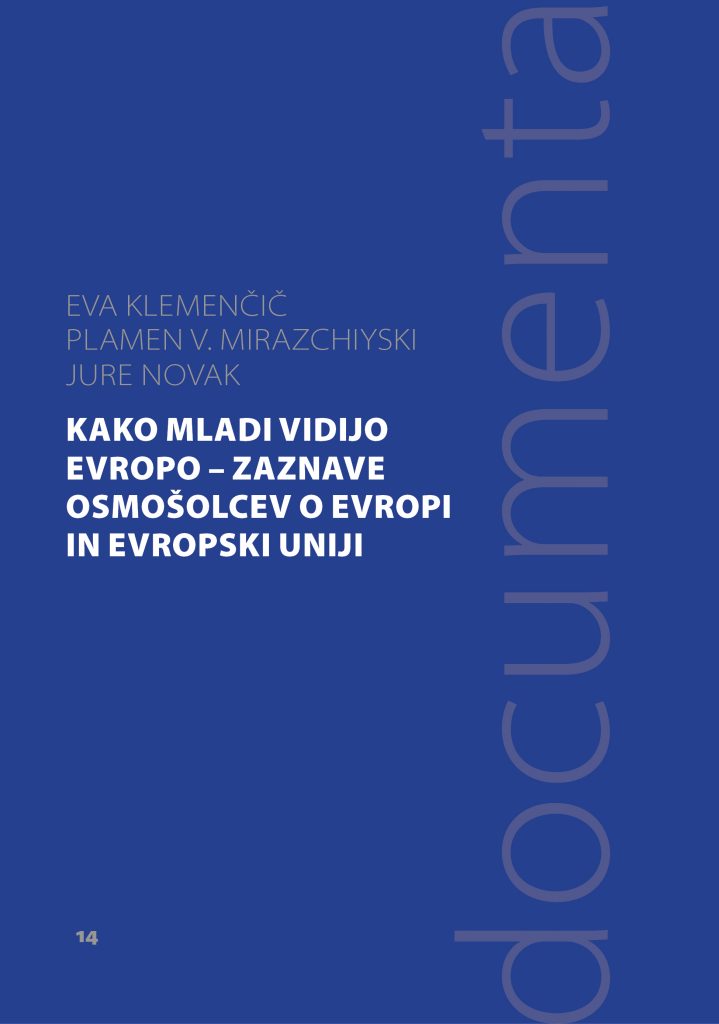
Kako mladi vidijo Evropo – zaznave osmošolcev o Evropi in Evropski uniji: nacionalno poročilo Evropskega regionalnega modula ICCS 2016.
Author(s): Eva Klemenčič, Plamen V. Mirazchiyski, Jure Novak
Type of work: scientific monograph
Publication year: 2019
Number of pages: 94 strani
ISBN-13 (PDF): 978-961-270-308-0
ISBN-13 (HTML): 978-961-270-309-7
Način citiranja:
APA:
Klemenčič, Eva, Mirazchiyski, Plamen V., Novak, Jure (2019). Kako mladi vidijo Evropo – zaznave osmošolcev o Evropi in Evropski uniji: nacionalno poročilo Evropskega regionalnega modula ICCS 2016.
https://www.pei.si/ISBN/978-961-270-308-0.pdf
MLA:
Klemenčič, Eva, Mirazchiyski, Plamen V., Novak, Jure. Kako mladi vidijo Evropo – zaznave osmošolcev o Evropi in Evropski uniji: nacionalno poročilo Evropskega regionalnega modula ICCS 2016. Pedagoški inštitut, 2019.
<https://www.pei.si/ISBN/978-961-270-308-0.pdf>
The International Civic and Citizenship Education Study (ICCS) is a broad study about civic knowledge and skills that eighth grade students around the globe already possess and the means that are available for them to acquire them. In a rapidly changing world, such a study is necessary if we are aiming to raise a generation of people who will actively participate in society, as they are the ones who, in the future, will make changes and determine the progress of the society, either at a local or national, or even at a global level.
ICCS is a study conducted in cycles, formerly conducted under the name of Civic Education Study(CivEd) and has only been known under the name of ICCS since the 2009 cycle. On an international level it is coordinated and supervised by the International Association for the Evaluation of Educational Achievement (IEA), and the Educational Research Institute (Pedagoški inštitut in Slovene) is responsible for the study in Slovenia. Slovenia participated for the first time in CivEd 1999 and has been a regular participant ever since (namely in ICCS 2009 and ICCS 2016). Conducted in cycles, the study allows us to use the same items in order to report on trends and make comparisons between the cycles. Altogether, 24 educational systems have participated in the 2016 cycle and the data collected from these systems included 3,800 schools (same number of principals), 37,000 teachers and around 94,000 students, most of whom were eighth-graders. A total of 135 Slovenian schools participated in the main study of ICCS 2016 (the same number of principals), with 2,056 teachers and 2,844 eighth-graders.
ICCS data are collected from various instruments: a cognitive test for students, a national context questionnaire, and students, teacher, and principal questionnaires with special regional modules added (Latin-American and European).
Prenosov: 74
 PEDAGOŠKI INŠTITUT
PEDAGOŠKI INŠTITUT